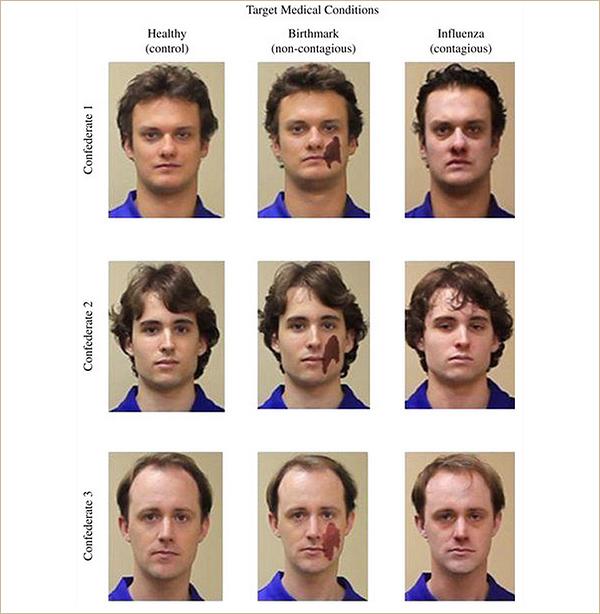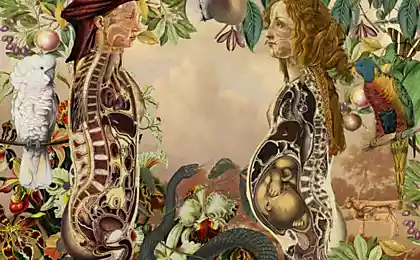1396
Disadvantages of a strange appearance makes us suspect contagious disease

Aversion which we unconsciously experience to people with a large birthmark, comes from the instinct of self-preservation, which sees the appearance of a lack of potential infectious disease.
We realize it or not, appearance defects make us suspicious of him from whom they are. This concerns, first and foremost, a person: a vast birthmark, harelip, scars after burn anyway cause a feeling of disgust. From people trying otsest on the bus, they are embarrassed to shake hands. The reason for this, according to psychologists from the Australian Macquarie University, that we mistake this appearance as a sign of a contagious disease.
Fear of contracting an extremely old - we unconsciously appreciate what surrounds us, for the infectious risk. If we see (or smell) something like that, we have a reaction of disgust, which protects us from the collision with the disease. View rashes, ulcers, or, for example, someone else's runny force us to stay away from their owners. But sometimes, this system gives failure.
In the experiment, psychologists attended by about a hundred people. They showed a video in which different actors perform some manipulation of different objects: a towel, harmonica, snorkel diving. The bottom line was that appeared as an actor in different forms: as a healthy man in the makeup of influenza and painted with a huge birthmark on his face.
After the movie ended, the participants of the experiment suggested to repeat what they had seen, and with the same items that were in the hands of the actors. Mandatory element of manipulation was to bring the subject to his mouth, and psychologists carefully watched how accurately reproduce the experiment, participants saw. Those who have had to deal with things, to visit in the hands of "influenza" or actor in order in whose face was a birthmark, often could not help but to show disgust. They tried to keep things away from your mouth, or at least wipe them carefully. Psychologists emphasize that the reaction to the birthmark and signs of a contagious disease was the same, though, of course, everyone knew what the birthmark is different from the flu.
The results of the scientists in the journal Evolution and Human Behavior.
The data obtained were not unexpected: some preliminary studies have already spoken in favor of the fact that our aversion to the shortcomings of the exterior comes from the ancient instincts of self-preservation. As to whether you want to do something with these instinctive reactions wrong, then there remains only hope for the proper upbringing and self-control.






















